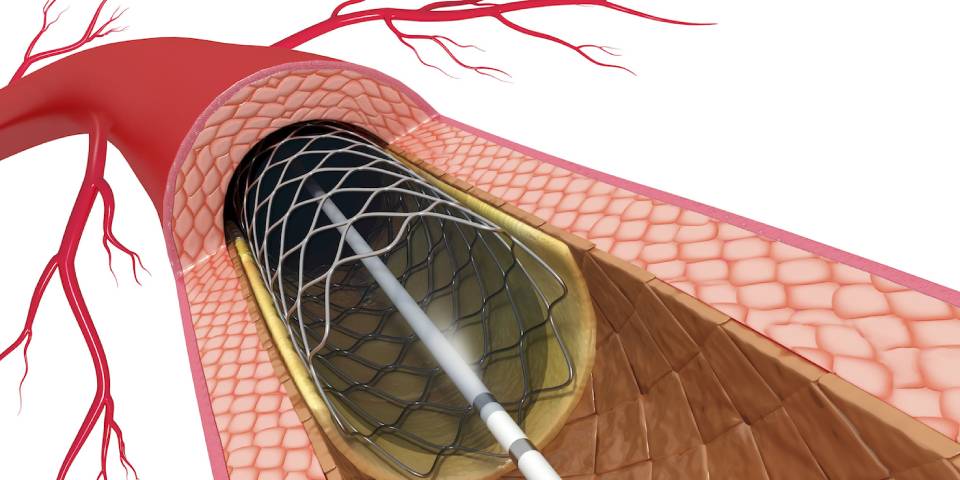A percutaneous coronary intervention (PCI) is a minimally invasive procedure to open blocked coronary (heart) arteries. An older name for PCI is coronary angioplasty with or without stenting. A PCI procedure uses a small balloon to reopen a blocked artery to increase blood flow. Usually, a small, permanent tube (stent) is implanted into the artery to keep the artery open long-term. It is performed either through the groin or wrist. Read This Blog Here are some useful tips to assist you, and don’t hesitate to consult with doctor Kartik Bhosale Cardiologist for additional guidance on effectively handling PCI/Angioplasty .” If you have any questions/queries about then you can consult Dr. Kartik Bhosale at his clinic in Wakad.
Let’s See more about the lifestyle Management AFTER PCI
9 Tips for Sustainable Lifestyle Changes After PCI:
PUNCTURE SITE CARE:
“After your procedure, it’s essential to take care of the puncture site. Make sure it stays soft, flat, and dry, and check for any signs of bleeding. If your arm or leg suddenly feels cold, appears pale or blue, or becomes painful, don’t ignore it. Although rare, these symptoms could indicate compromised circulation, which is a medical emergency. Seek immediate medical attention if this occurs.
For the first three days post-procedure, avoid submerging the puncture site in water. This means no baths, hot tubs, or swimming pools.
MEDICATIONS AFTER PCI:
- Do not stop or skip a dose of medications without speaking to a health care professional, as it may increase the risk of having another heart event. Talk to your doctor or pharmacist if you have any concerns about your medications.
- If you regularly take metformin (a diabetic medication), resume your metformin 48-72 hours after your procedure unless your heart specialist or family physician tells you otherwise.
- After your PCI, you do not need antibiotics to prevent infections before a medical or dental procedure.
EXERCISE:
If you had a recent heart attack, walking is the best form of exercise. Start with slow walks of 5 minutes a day on a flat surface. Add one minute per day until you get to 30 minutes. Gradually increase your activity each day as tolerated. In the first few weeks after your heart attack, avoid doing strenuous exercises.
DIET:
Eating well and maintaining a heart-healthy diet is an important part of keeping your heart in good shape. Eat plenty of vegetables and fruits, whole grain foods and protein foods. Prepare meals and snacks using ingredients that have little to no added sodium, sugars or saturated fat.
QUITTING SMOKING:
Quitting smoking is the single most effective way to improve your health. Talk to your health care provider about quitting. There are several medications that can help you stop smoking.
SEXUAL ACTIVITIES:
It is safe to resume sexual activities if it has been 7-10 days after your heart attack and if you can climb two flights of stairs without becoming short of breath or having chest pain. Medications for erectile dysfunction may interact with certain heart medications such as nitroglycerin.
DRIVING:
Clarify your driving restrictions with your heart specialist. If you had an elective PCI, you are generally safe to drive two days after your procedure. If you had a heart attack, you can start driving between two days and three months after your heart attack.
TRAVELLING:
Generally, it is safe to fly 7 days after a PCI procedure. Talk to your heart specialist before you book a flight. Coronary artery stents do not trigger metal detector alarms in airports, and you can walk through them safely.
CARDIAC REHABILITATION:
Heart disease is a chronic condition that requires lifelong behaviour changes. Cardiac rehab offers tools and support so you can achieve your goals. By helping you identify and manage your cardiovascular risk factors, cardiac rehab programs can reduce your risk of future heart attacks by up to 25%.
If you are unable to manage After PCI Care then use the above simple tips to manage. If these tips are not useful for managing your PCI then consult our expert for More Information Visit Dr. Kartik Bhosale’s Cardiologist Clinic. For Appointment booking call us on +918420070081 / +918420070082.







